Sleep is the most vital factor for a healthy lifestyle. The body is responsible for repair and regeneration during this time. It is also the time when our brain detoxifies and gets rid of waste toxic products. Good sleep is important for optimal health and can affect hormone levels, mood, and weight. But if you have got sleep issues, then you need to make certain lifestyle changes.
Sleep Problems

Sleep problems like snoring, sleep apnoea, insomnia, sleep deprivation, and restless legs syndrome, are common. But experts say that if we feel drowsy during the day, even during boring activities, you haven’t had enough sleep. Sleep quantity also increases if he or she has been deprived of sleep in the previous few days.
So, getting too little sleep/insufficient creates a “sleep debt”.
Insufficient sleep may cause problems such as:
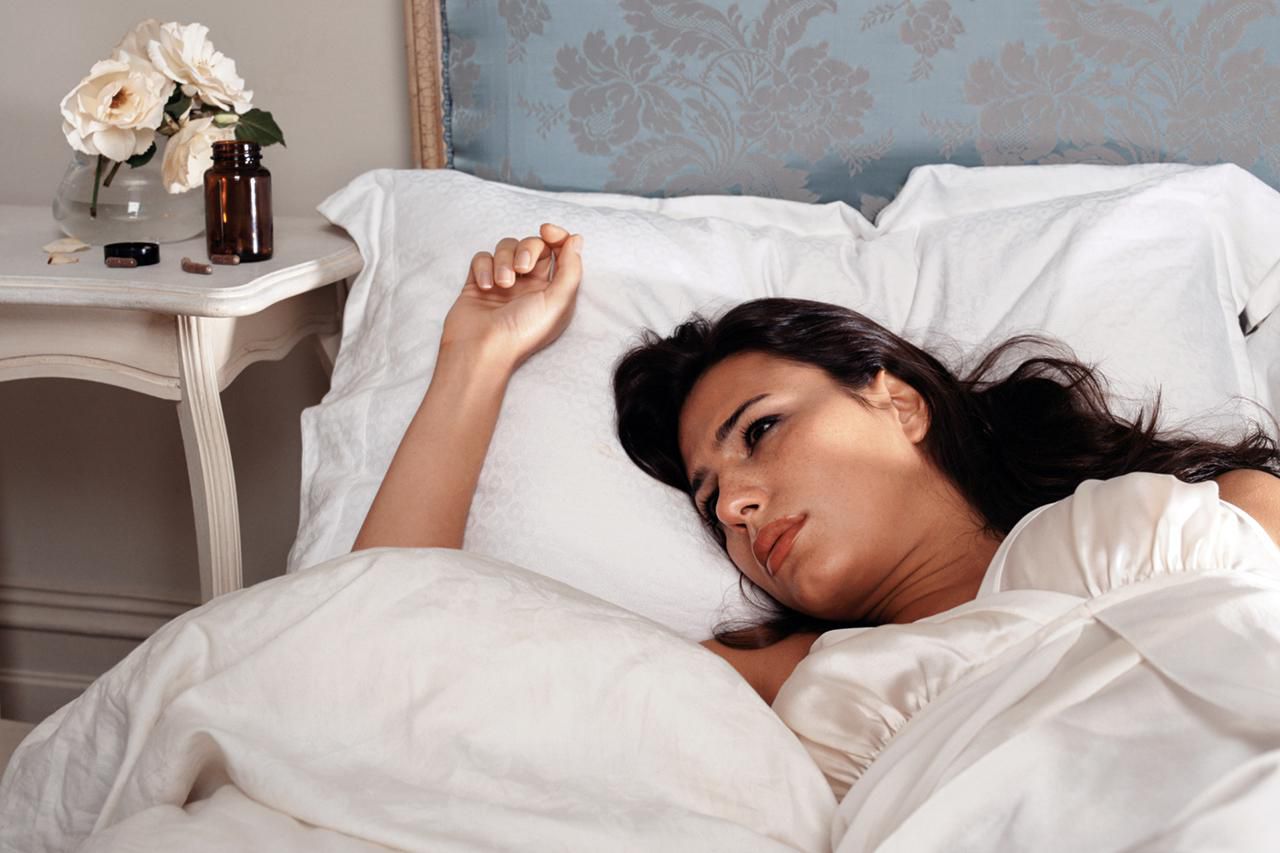
- Depression
- Mood Off
- Not energized
- Low Stamina
- A weak immune system
- Increasing our chance of becoming sick
- Increase in perception of our pain
Consequences of Sleep deprivation:

Poor quality of sleep is the most underestimated but responsible factor for weight gain, menopause, mood swings, low energy levels, fatigue, etc. Poor sleeping patterns can even lead to hormonal imbalance.

Leptin and Ghrelin are the two hormones that are responsible for the regulation of appetite. Leptin signals the brain that we are full and Ghrelin signals the body to eat.
Many studies concluded that sleep deprivation can be dangerous.
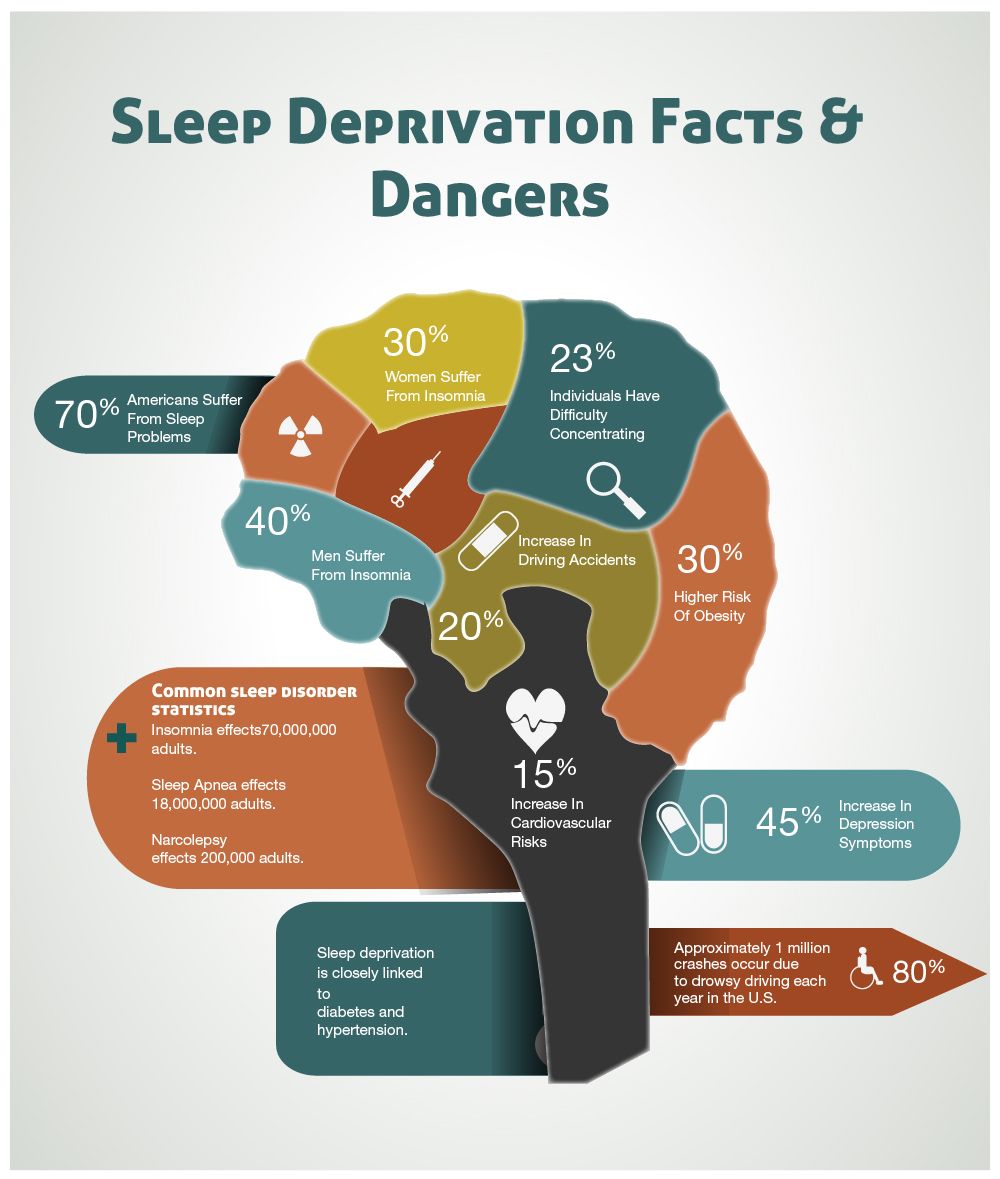
- Sleep-deprived people who are tested by using a driving simulator or by performing a hand-eye magnifies alcohol’s effects on the body, so if a fatigued person who drinks will become much more impaired than someone who is well-rested.
- Driver fatigue/tiredness is the most common thing that was responsible for an estimated 83,000 motor vehicle accidents between 2005 and 2009 and 803 deaths in 2016, according to the National Highway Traffic Safety Administration.
Causation
- Waking up at 3-4am (early hour insomnia)
- Constant interruption during sleep
- night sweats
- Distracted by negative thoughts
What happens when you don’t sleep well?

Leptin decreases, and Ghrelin increases, making our body think that you are starving. This either wakes us up to eat in the middle of the night or makes us overeating. When leptin levels are low, the thyroid gland slows the metabolism making us feel tired and increasing fat storage. Poor sleep increases the stress hormone cortisol in the body, which causes fat storage and can even increase insulin resistance.
In today’s hectic and busy life, disturbed sleeping patterns or sleeping problems are common issues.
Make certain lifestyle changes

- Try to avoid drinking stimulants like tea & coffee and also try avoiding doing smoking, drinking alcohol too close to our bedtime. But it is also to be noted that alcohol is known to speed up the onset of sleep, it disrupts the sleep in the later part causing frequent waking up.
- Try to avoid spicy foods, especially at night.
- Try not to go to bed hungry or stuffed as it may cause discomfort and might keep you awake.
- Also try to limit drinking too much water before bed, to prevent disruptive middle-of-the-nights trips to toilet.
- Carbohydrate and calcium rich foods like wheat, rice, pasta, milk and cheese can be included in our diet as promote the release of serotonin, which is a sleep inducing hormone.
- Green leafy vegetables like lettuce have opium related substances which acts as a natural sleep aid.
- We can have magnesium rich food sources like sunflower seeds, and cashews and almonds to relax your muscles and hence get a good sleep.
Do we know that environment is also responsible for having a good sleep?
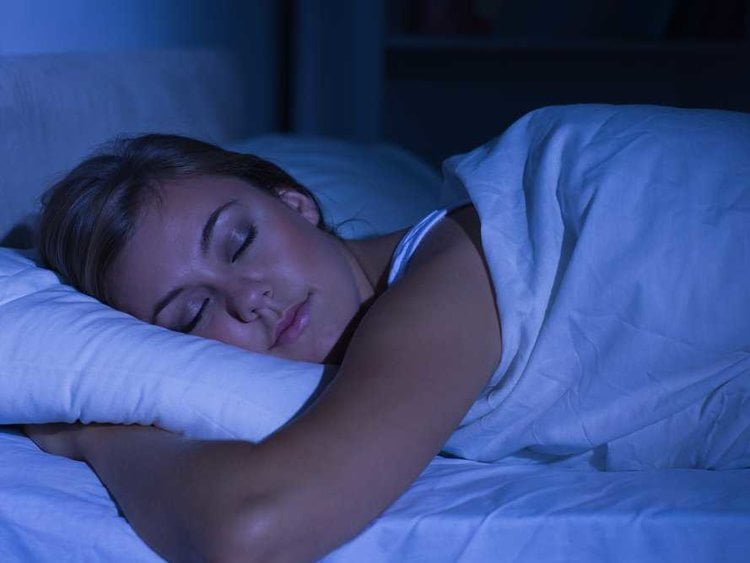
- Always practice going to bed at the same time every day.
- This registers in our subconscious mind and allows us to sleep well.
- Also, this helps to regulate our body clock and could help us fall asleep.
- The artificial light can reduce the production of hormone named melatonin which makes it hard to fall asleep.
- So, we should try to keep our bedroom black.
- Plus switching off electronic lights (alarms, mobile, TV, iPad) is very essential before bedtime.
- Try to keep your room gadget free.
- Also try charging our phone or laptop in a different room or put them on Airplane mode.
- This will reduce the, Electro Magnetic Frequencies, that can interfere with your sleep.
- Stress is one of biggest factor of inadequate sleep.
- Try to switch off from daily activities and get into sleep mode.
- Try to hear soothing music or even read good books, perform meditation or do some deep breathing exercises.
- It is also preferable to take a hot shower before bed or even we can go for Epsom salt bath.
- As Epsom salts are rich in Magnesium Sulphate, a known muscle relaxant and detoxifier.
Noise:
- Noises like someone talking in the other room, noise of television or even barking of an animal and also traffic can upset sleep.
Solution
- One can also hang some heavier curtains on our windows.
- Also we can replace windows with double or triple paned glass
- Even we can invest in some ear plugs to avoid listen to these disturbing noises.
Mattress and Pillows:
Make sure our mattress and pillow meets your needs for both comfort and support.
Light:
The sun can wake up our brain long before the alarm goes off.
A dark room is very important forour sleep– day or night.
Temperature:
- The ideal bedroom temperature should be 16 to 18 degrees Celsius.
- A room that’s too much warm or even too much cool can also disrupt comfortable sleep.

Let’s know about how Alcohol and Caffeine and some other Dietary Factors can affect sleep and how to manage that?
- Alcohol leaves us dehydrated at the middle of the night, with low blood sugar and overtaxed liver.
- Alcohol also messes with our production of serotonin.
- Caffeine is a stimulant that can keep us awake. So, we need to avoid the consumption of caffeine 4-6hours before bedtime.

- Try to limit white /refined carbs like pasta, white rice, bread, pastry, sugar and processed foods.
- it will spike blood sugar at night and may wake you up.
- Eating a healthy dinner is very important as it allows the body to absorb proper nutrients .
- It provides the brain with the chemical environment which is required to produce neurotransmitters to maintain adequate sleep.
- Our sleep can be interrupted if we ’re dehydrated as this stimulates cortisol, which wakes us up.
- Tryptophan rich foods are helpful for sleep.
- Food sources are whey protein, fish, dairy, nuts and seeds.
- L-theanine is a calming nutrient found in tea (black and green), Magnesium helps to relax the body and increase a calming neurotransmitter.
- We can also try out some herbal teas like Ashwagandha, chamomile, lavender tea, passion flower and even lemon balm to induce sleep.
Techniques induce good sleep.

- Yoga can be done before bed to help initiate a restful sleep.
- But if we are planning a vigorous workout then it has to be complete 2 to 3 hours before going to sleep.
- A heavy workout will make it difficult to go to sleep, causing muscle soreness.
- 10 minutes of meditation along with deep breathing techniques can help us relax your mind & body and help to get a sound sleep.
- a warm bath just before going to sleep also induces a good sleep because the sudden rise and then fall of body temperature makes us feel drowsy.
- Try to avoid emotional conversations or negative thoughts which may give us stress and affect our sleep.
- Try not to turn on any electronic device’s televisions, mobiles, or tablets. As the blue light emitted from such objects is known to hamper sleep.
Do we know that even poor sleep postures could cause sleep apnoea, muscle cramping, impaired circulation etc?

Sleeping on our stomach:
- Approx. and around 7% of people sleep on their stomach.
- In this position, our spine and neck are not in a neutral position
- This can put some pressure on nerves which cause numbness, tingling, and nerve pain.
- It is best to choose another sleep position if we are a stomach sleeper.
- If we can’t break the habit, prop our forehead up on a pillow, so our head and spine remain in a neutral position and have room to breathe.
Soldier Position:
- Here, the person sleeps on his/her back with hands close to the body.
- Around and approx. 8% of people sleep this way.
- This is not a proper sleep position for those people who snore.
Starfish Position:
- People who sleep in a starfish position generally sleep on their backs with the arms up over their head.
- Approx 5% of people sleep this way.
- people who sleep in the starfish position are more prone to sleep problems.
Best Sleeping Position:
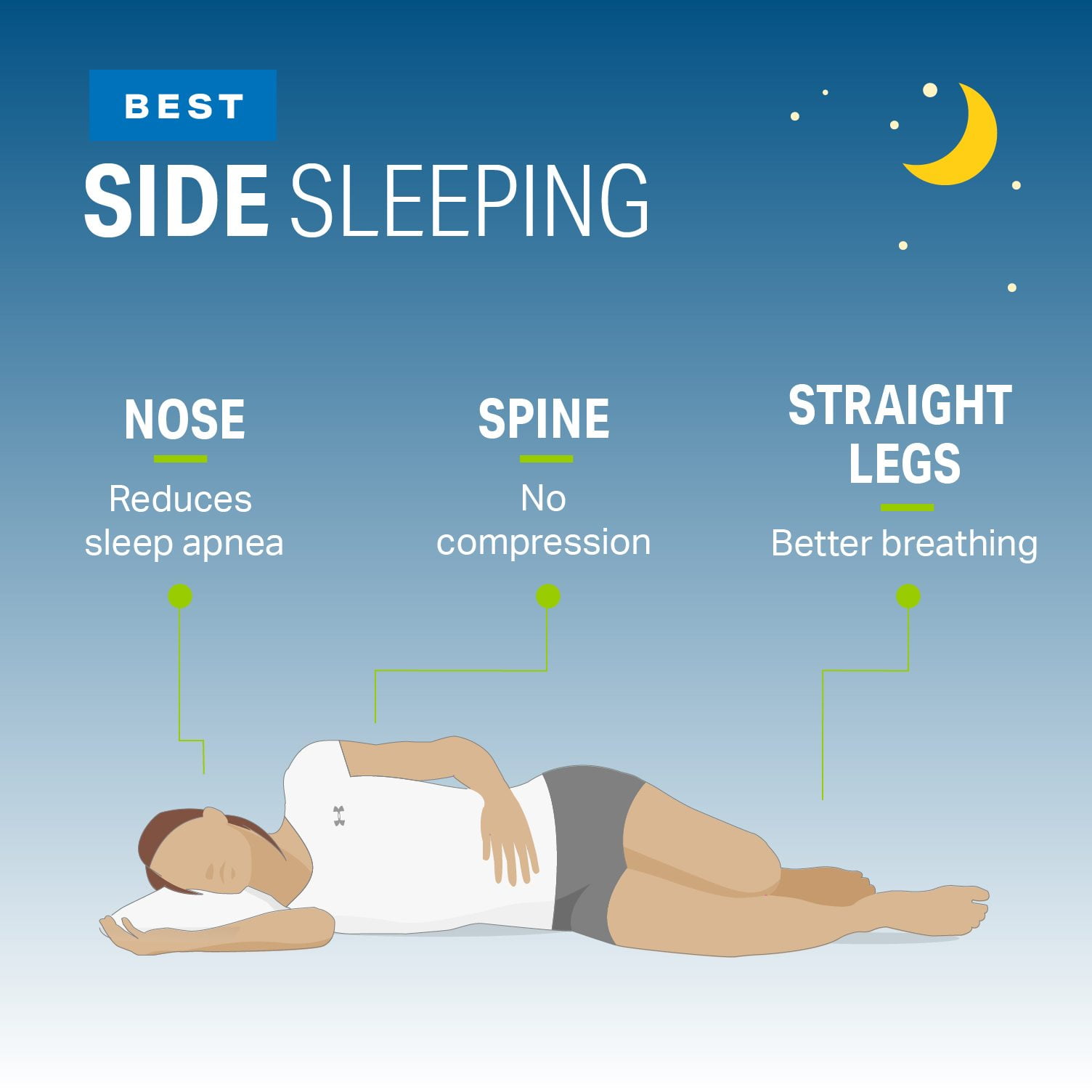
- Sleeping on the Side:
- 41% of people sleep this way by means of curling up on their sides along with their knees bent.
- This is one of the best positions
- It is also preferable for pregnant women because it facilitates circulation to both the mother and the foetus.
- It also wards off back and neck pain.
- This position lead to wrinkles because half of our face pushes against a pillow
- So try to use soft pillows to avoid wrinkles on the face.
- Sleeping on the backside:
- Sleeping on our back with our head slightly elevated is the best sleep position for people suffering from heartburn.
Let’s list some priorities before sleeping?
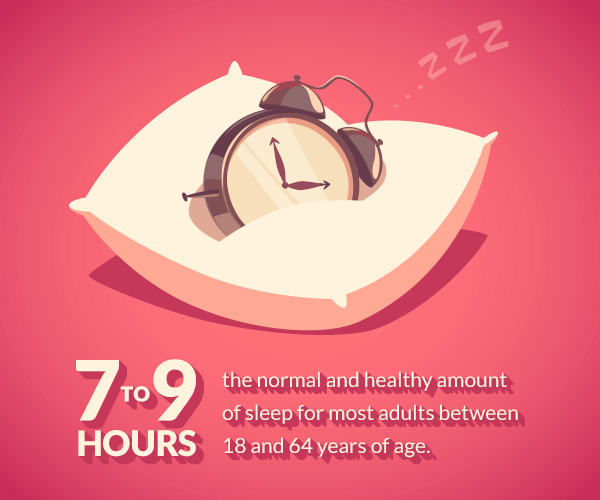
- Always aim for 7 hours for a full uninterrupted sleep
- Try to sleep and wake up on same time daily basis even on weekends, this helps circadian rhythm your ‘biological clock’ to tick properly.
- Try to avoid and also limit coffee, chocolate or nicotine post sunset
- Sleep in a room which is slightly cold as this helps the temperature in the brain to fall and help fall asleep quicker.
- We need darkness in the evening to allow the release of a hormone called Melatonin or sleep hormone. It helps the healthy time of our sleep.
- In this modern age, we are deprived of darkness.
- So try to dim lights down at your home an hour before bed.
- Stay away from LED screens as they emit blue light that actually puts break on melatonin and disturb the sleeping quality and pattern too
- Avoid big meals before bedtime and avoid working out/exercise 2 hours before bedtime.
- Try magnesium-rich foods like fish or fish oil, almonds, bananas, pumpkin seeds, warm milk, cherries, mushrooms and dark green leafy veggies in dinner.
- Magnesium helps to relax our muscles and ease anxiety which contributes to insomnia
- Having a cup of chamomile tea 30 mints before bed.
- hamomile is regarded as a sleep inducer.
- It relaxes nerves and muscles and helps fall sleep quicker.
Recommendations:
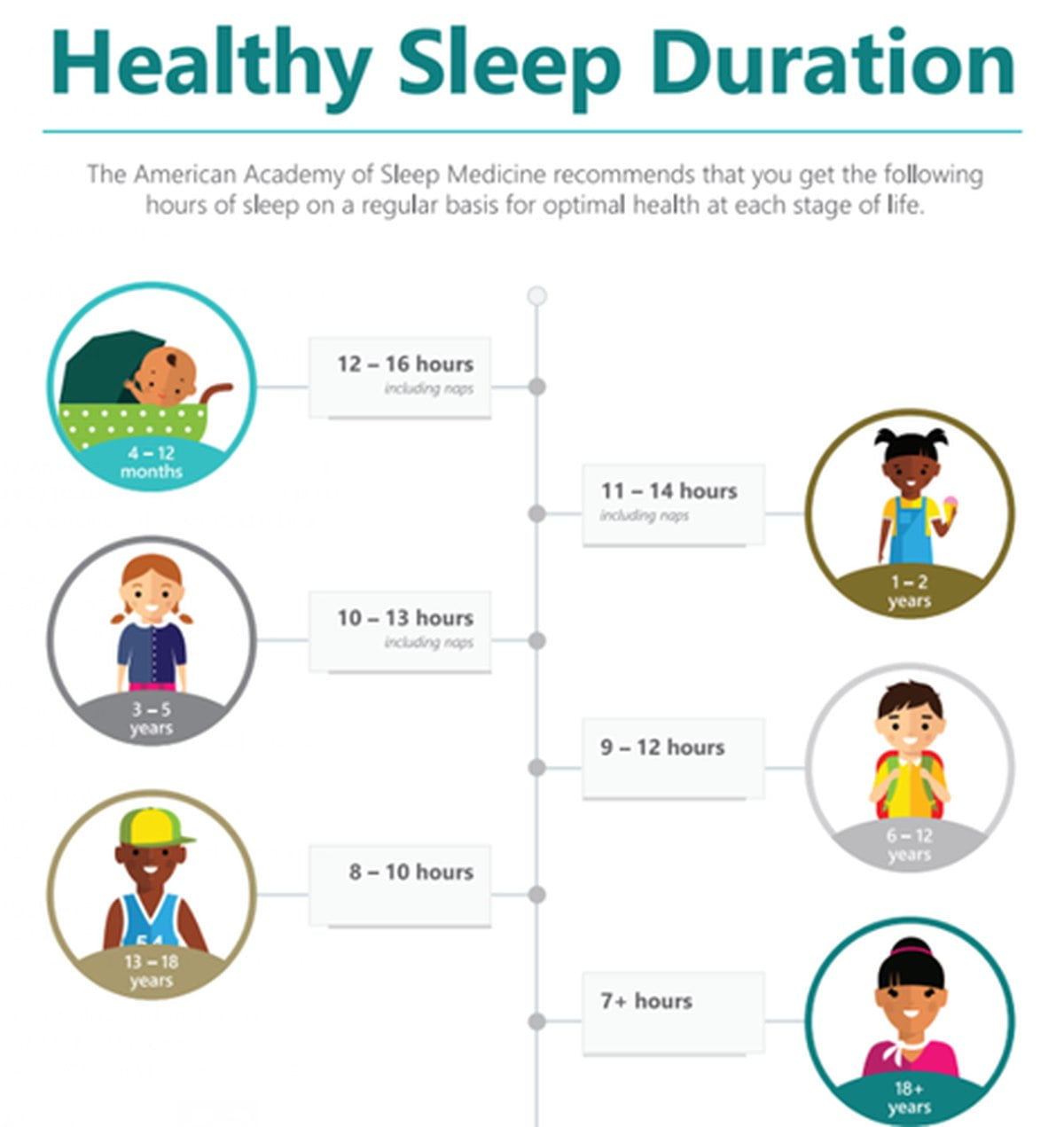
- Infants (0-3 months) – 14-17 hrs a day.
- Infants (4-11 months) – 12-15 hrs a day
- Toddlers (1-2 years) -11-14 hrs a day.
- Pre-school children (3-5yrs) require 10-13 hrs a day.
- School-age children (6-13yrs) require 9-11 hrs a day.
- Teenagers (14-17yrs ) need about 8-10 hrs each day.
- Most adults need 7 to 9 hrs a night for the best amount of sleep.
- Older adults (more than 65years) need 7-8 hrs of sleep each day.
- Women in their first trimester of pregnancy need several more hours of sleep than usual.
The power of sleep is very important but now there are more proofs demonstrating just how important to have 7 to 8hrs of peaceful sleep on a daily note.
By using above mentioned techniques/ways we can get a way for relief from anxiety /sleep problems and eventually will sleep peacefully.
Always remember that







